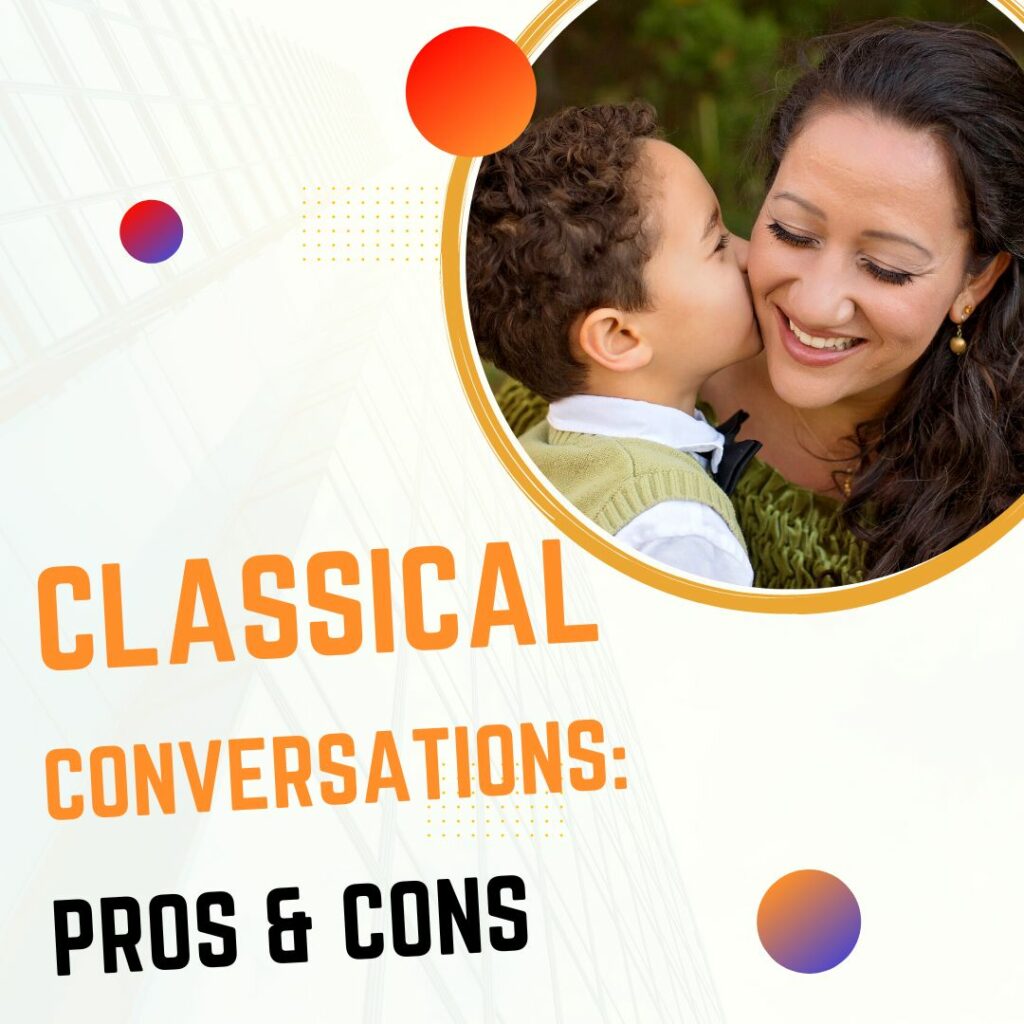

You’ve just heard from your friend. A Classical Conversations group is starting in your town. Do you want to join? Before you make that choice, take some time to read my full Classical Conversations homeschool curriculum review. Maybe it will (or maybe it won’t) be the right program for your family!
If you are a newcomer to homeschooling, I highly suggest enrolling in the Homeschool Parenting Program. This program will provide you with comprehensive knowledge of homeschooling, ensuring that you feel confident and at ease. The course is both engaging and enlightening.
I hope you enjoy reading this blog post. If you want to do my course on how to homeschool, click here.
Please note: Rebecca Devitt isn’t the author of this post. The author of this post wished to remain anonymous.

Affiliate links are included in this article.
At its core, Classical Conversations is a Christian, classical homeschooling program.
Let’s start by thinking about what it means to be a classical educator…because you have to like the classical homeschooling method before you even think about whether you’ll like Classical Conversations.
Classical education is a popular approach to homeschooling. It is based on a style of learning that comes from the ancient Greeks.
In most classical curricula, students will read books from the Western canon and receive a liberal education. By liberal, classical educators mean that learning is not related to a job or earning money.
Christian classical education is similar.
This method aims to know Christ by learning what is good, true, and beautiful. In fact, Classical Conversation’s motto is “To know Christ and make Him known.”
If you aren’t sure about classical education, my Homeschool Parenting Program (HPP) digs right into this method. And if the classical method isn’t for you, you’ll learn about many other ways to homeschool in the HPP.
No two classical programs are the same. Here’s what makes Classical Conversations special.
Perhaps the most important part of Classical Conversations is that it is more than a curriculum. It is a community of home-educating families.
This community meets once a week in person. At these meetings, trained teachers lead classes for the children based on the Classical Conversations curriculum. These teachers are often homeschool parents.
At home with your child, you will review and practice what they learn in class.
Keep in mind that you will need to teach math at home with Classical Conversations with a mathematics program (CC use Saxon math, as we discuss further down the page).
If your child is younger, you will also need to teach them to read. Older students will have work to complete at home.
Classical Conversations provides a place to connect online, as well. They have an online forum to discuss ideas with other parents.
Conveniently, you will also find online training and a place to share resources. It’s an awesome spot to find support outside of the weekly meeting.

In classical education, the trivium refers to three stages of education: grammar, logic, and rhetoric. This sets the scope and sequence for Classical Conversations. (Take a peak at the video below for a great overview of classical education)

I know people who are enrolled and they strongly dislike it, I highly recommend not enrolling in this program.
Yes, I’ve heard mixed accounts. I wonder if it depends a lot on the person running the course. It’s a franchise.
Very thorough article! However you mentioned that the groups are led by teachers. CC corporate is very firm on reminding parents that they are the teachers so as to remove responsibility from the tutors. We are not allowed to call them tutors.
This has advantages and disadvantages. If you end up with a brand new person tutoring, they could have little to no knowledge on what they are tutoring especially Latin and Logic. I was unprepared for the lack of direction for these two subjects in particular.